Tunnel? Ferry? But, what was it like when you had to sail across the Gozo Channel?
This much-loved classic Maltese song is a sweet, nostalgic look at the sailing boat which used to link Malta and Gozo. The popular song ‘Id-dghajsa tal-Latini’ by Sammy Bartolo of New Cuorey reminisces how the sailing boat united the two islands into one beating heart. The song depicts images of the boat sailing through the sea, making waves as it goes from harbour to harbour. It tells tales of transporting cargo, times of war and much more. Every Maltese person knows this song, no matter their age.
In an entire book dedicated to ‘The Dghajsa and Other Traditional Maltese Boats’, Joseph Muscat explains what 'tal-Latini' was about. The early 16th century sailing vessels were indeed lateen rigged - featuring a triangular set sail - but the name stuck even when the rigging changed in the late 19th century.
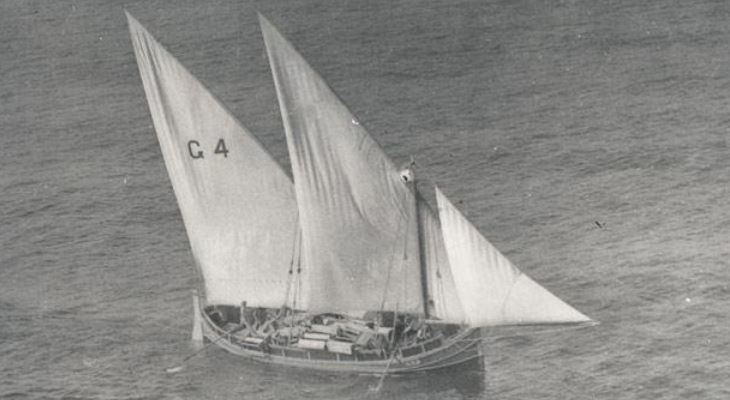
Times of Malta
Built the traditional way, the boat was painted in the traditional colours of green, blue, red and yellow with a mustache and the eye of Horus. Such a boat painted in black was kept to transport the dead between the two islands. The double-ended open sailing vessels utilised oars to manoeuver in and out of the ports. And, only a hundred years ago, in 1919, engines were first installed on these boats, although the sails persisted up to around 1950.
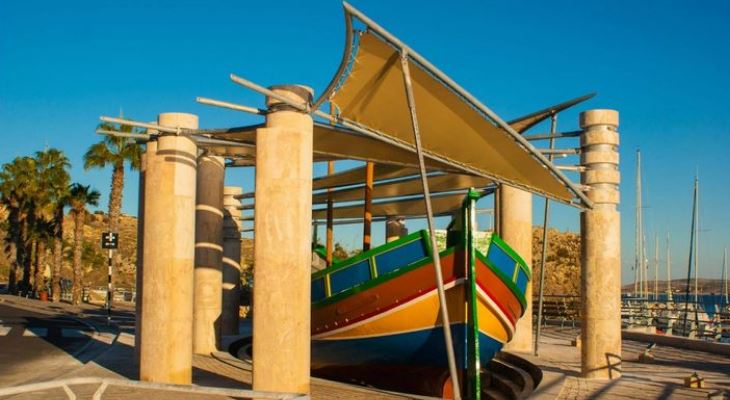
But let’s go further back in time a little bit. Up until 1885, there was no regular passage of boats between Malta and Gozo! Small Gozitan boats had been available since 1241 but it soon became apparent that they would be needed to create a route between the islands! Then, these boats were also known by the name of ‘tal-moghdija’ or ‘tal-pass’ referring to the passage between the two islands.
The name ‘tat-taghbija’, referring to cargo, came at a later time. For a very long time, Gozitans had been left very much to their own devices and evolved as a completely separate community with little crossover, quite literally. Eventually, these Gozitan boats provided room for the island's exports of fruit, vegetables and dairy to Malta.
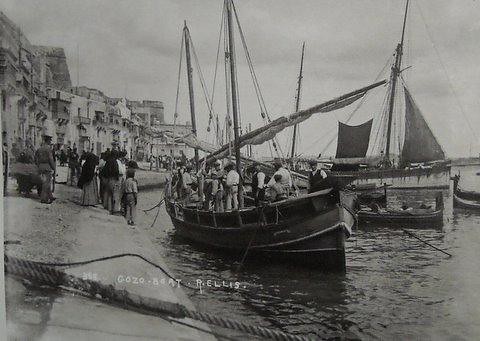
All in all, sailing between Marfa, Malta, and Mgarr, Gozo, was expected to take on average between one hour and one hour and three quarters. In bad weather, it could take up to five hours! A captain, an engineer and seven sailors crewed the boat and a conch was blown to herald its arrival to port in the mist.
The crossing not only took longer but was also not as safe as it is today either. Capsizing in bad weather was not uncommon. The boats also sailed to the Grand Harbour and there were also collisions and other dangers on the way. In fact, when registration came into place around 1920, such boats were permitted to ‘carry cargo, passengers and traders between the Grand Harbour and Mgarr, Gozo, only in daylight hours and in fair weather’.
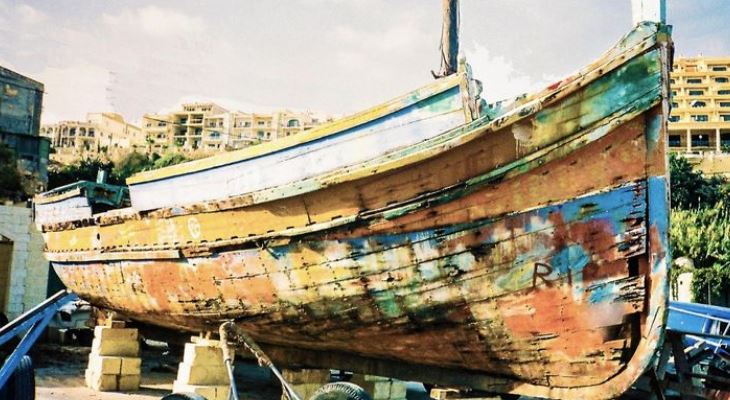
By 1923, the Malta Steamship Company began operating a much-needed steamer service which could carry vehicles and the increasing amount of people traffic more regularly across the two islands with the Latini boats operating alongside it. The ferry system continued to evolve and the last of these beautiful Gozitan boats gave up service in 1970. The Gozo Channel Company Limited we know today was formed in 1979, then making just eight round trips per day.
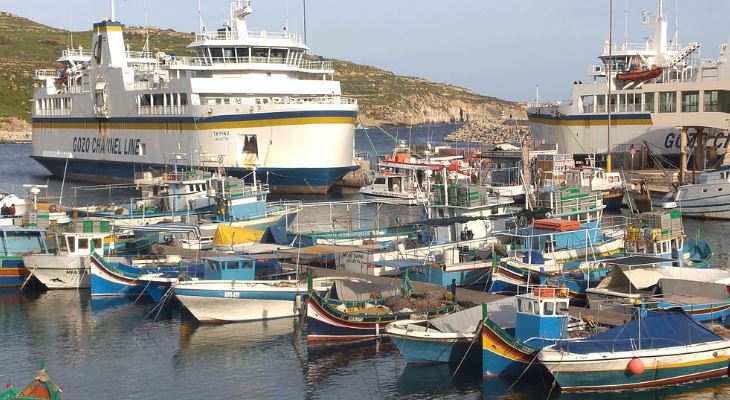
KarstenDD [Public domain], from Wikimedia Commons
Just forty years later, the highly regular and efficient Gozo ferry is barely deemed practical enough and a tunnel project to join Malta and Gozo is constantly on the news. Yet only in 2014, a restoration project brought the last of the Latini boats back to life to celebrate its important role in Maltese heritage. The Sacra Famiglia is now on permanent display at Zewwieqa, Mgarr, Gozo.